Smart Boiler Installation: All You Need to Know
- Components of a smart boiler system
- Reasons why it saves money and energy
- Best smart systems compared
When the word “smart” is put in front of various systems, it can be confusing to know just how this improves the product. With a smart boiler, you can upgrade your heating habits, eliminate wasted energy and save money at the same time. But how does it work? Thanks to advances in technology and remote operation, you can control and monitor your system wherever you are.
This article will explain what smart boilers are, and how you can upgrade your heating system, whether you’re using a combi boiler or otherwise. While some boilers come with smart functions, you can retrofit features relatively cheaply to help save on your energy bills. This article will then look at smart controls from leading brands.
Ready for a smart boiler to replace your run-of-the-mill model? Use our online quote comparison tool to find out how much you’d pay.
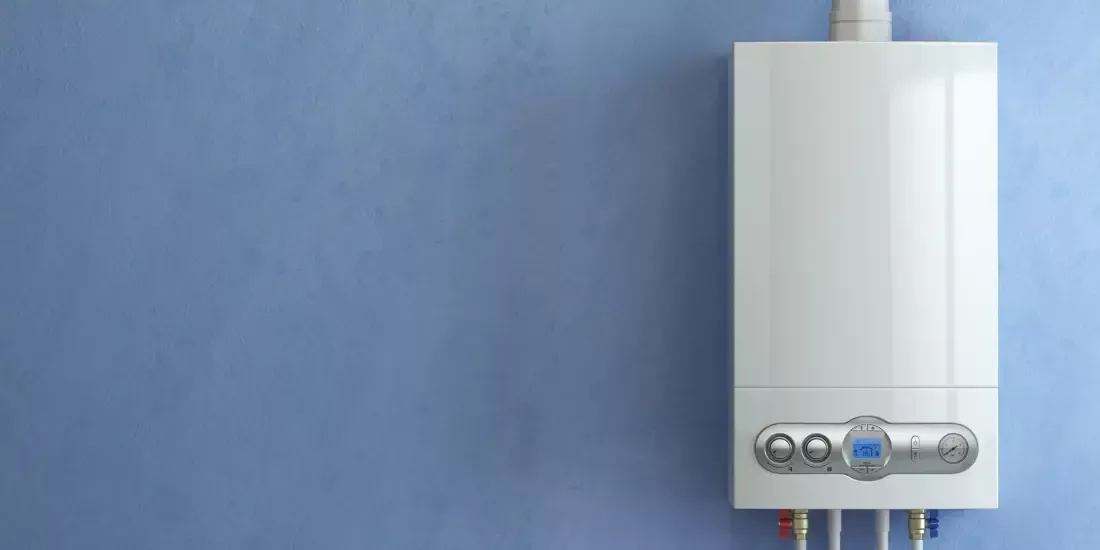
What's On This Page?
Click the links below and head straight to a specific section of the article.
What Is a Smart Boiler?
Offering intuitive functions and the ability to operate your system remotely, smart boilers have adjustable settings that can potentially learn your heating habits and make energy efficient improvements. These boilers usually rely on smart thermostats to offer these features, as the boiler unit itself is just designed to heat up.
Components
A smart boiler arrangement consists of three elements: the hub, the receiver and the controls. The hub is the kit that connects to your broadband, allowing for control over the internet. The receiver connects to the boiler so any input is registered with the heating system. Finally, the controls allow you to set the heating and timings for your hot water.
Smart Controls
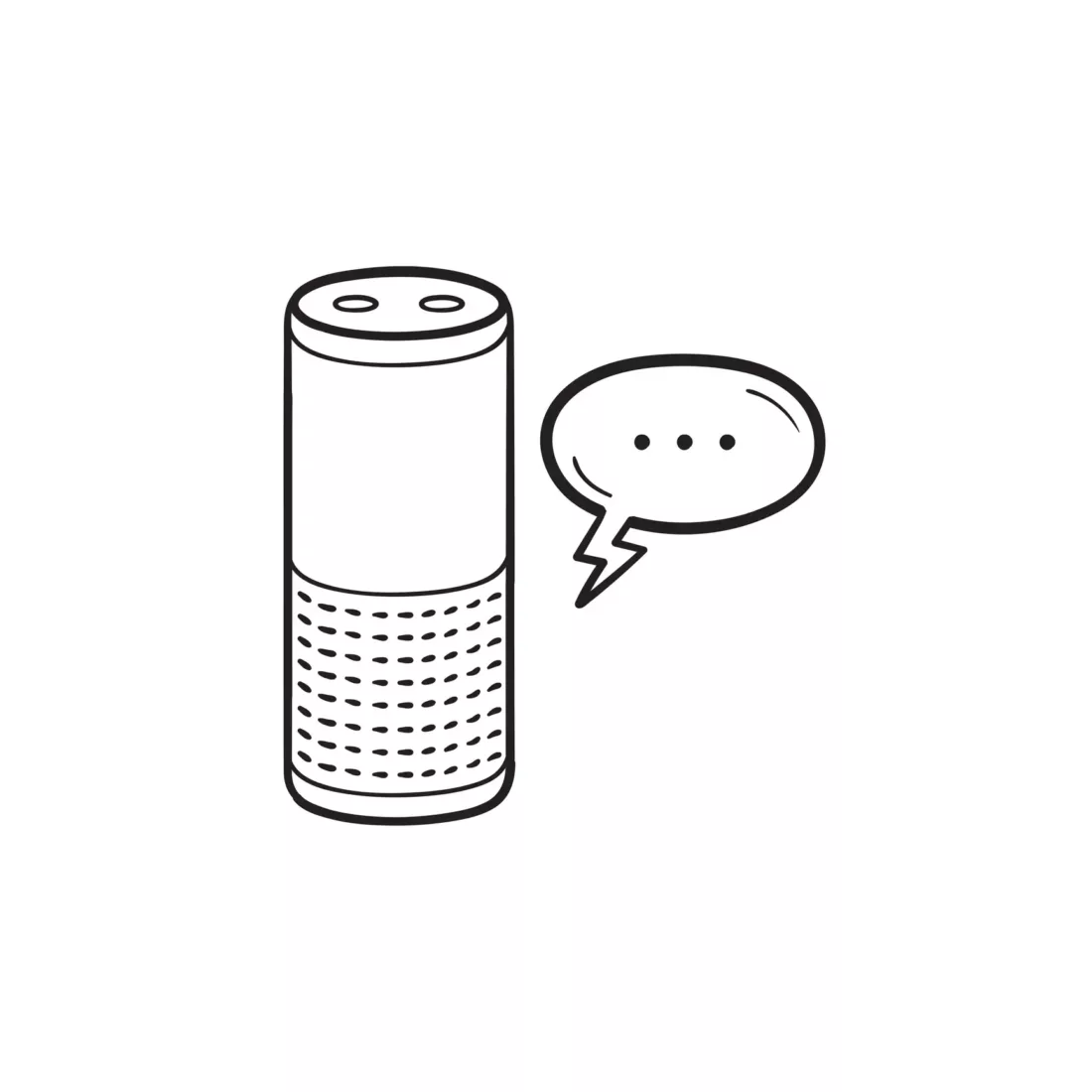
Some controls are universal, while others are specifically made by the manufacturer for their products. With the increasing use of smart speakers, a lot of these systems offer connectivity to suit you. These smart boilers open up a world of options, allowing you to adjust the programmer and thermostat from anywhere.
Depending on the thermostat installed, your smart boiler can learn when rooms are occupied and what times your heating will need to come on. The advantage of being able to set your heating on demand is that it offers you flexibility in case plans change. Stop heating an empty home if you’ll be returning late or forgot to put it on holiday mode and you’re already in the airport lounge.
Is There a Need for Smart Heating?
In terms of energy efficiency, a smart boiler can streamline your heating process to operate more effectively. This prevents wild fluctuations and discomfort whenever the heating is in operation. It also prevents the need for foresight, not having to programme settings in advance, which is useful if your plans change.
Energy Use of a Traditional Thermostat
With a “dumb” thermostat (a traditional model), the system only relies on turning on and off in a binary process. Over time, the boiler heats the room until the desired temperature is reached before switching off again. When it’s lower than the thermostat setting, it turns back on again. This can be uncomfortable because people will often crank up the thermostat to try and make it warmer instantly, but this isn’t how heating works.
Energy Use With a Smart Thermostat
On the other hand, a smart boiler with an intuitive thermostat will receive feedback from the heating system to realise when it’s reaching the desired temperature and will tell it to slow down how quickly it’s heating up. Once the desired temperature is reached, a period of low flow temperatures is achieved, maintaining efficient levels at condensing temperatures.
Although constantly on in this scenario, the low flow temperatures are much more economical. It’s the same principle behind underfloor heating and ground source heat pumps. Instead of sharp spikes of use every now and again, maintaining a set temperature through a smart boiler saves you money.
Types of Smart Boiler Controls
There are a whole host of different features available to control your home heating. Some can be linked to your smartphone or tablet, while others can synchronise with your smart speaker system. When upgrading to a smart boiler, it’s important to choose an option that works for you.
A smart programmable thermostat is the way to control and set up your smart boiler. These devices can be used as they are and can be mounted on the wall or placed on the side. As well as the intuitive interface, the supplementary app makes controlling your heating much simpler. You may even be able to manage the hot water as well, but this will depend on whether your smart boiler system offers that functionality, and what type of boiler you have.
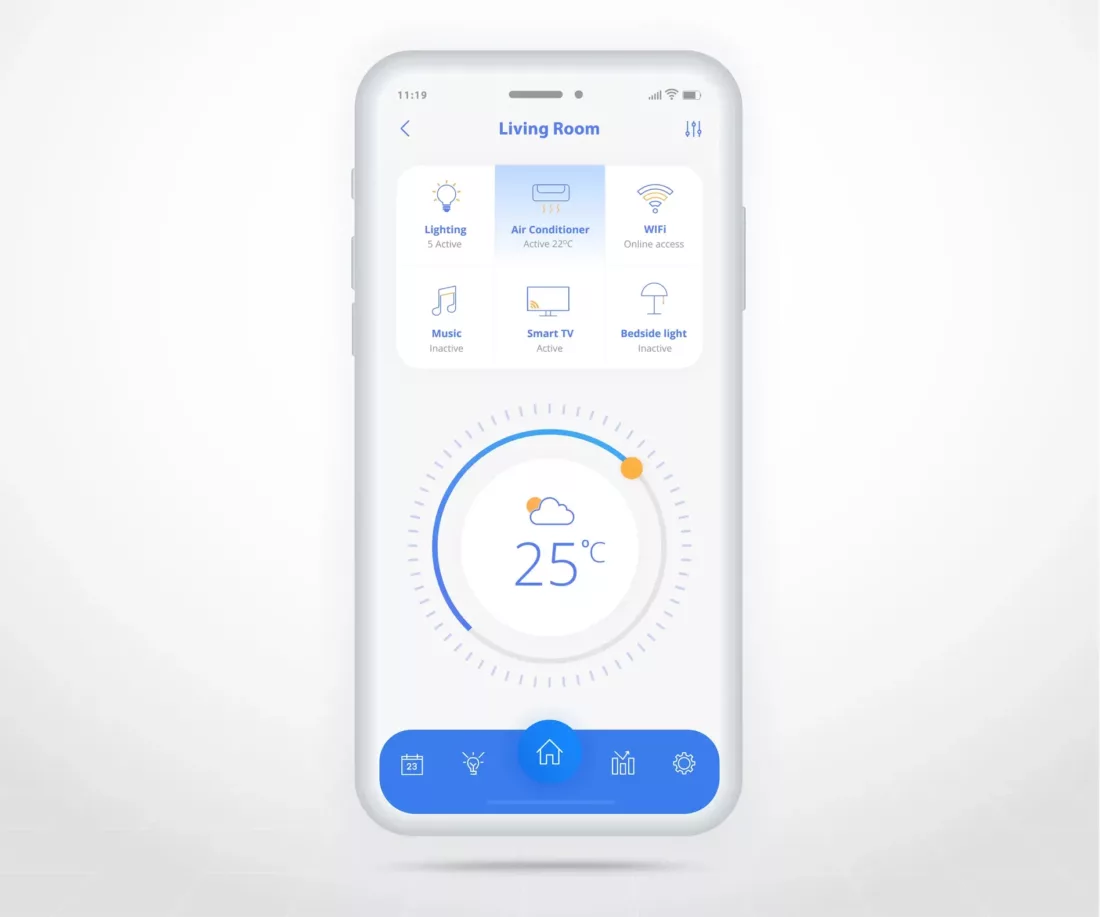
OpenTherm
You may have heard of OpenTherm before. It’s simply a computer language that allows heating systems and various thermostats to communicate together. If your existing boiler features OpenTherm technology, it can be controlled more effectively with a compatible room thermostat with the same system, as outlined in the graphs above.
This is probably the most basic control system, as it isn’t usually controlled through smartphones or devices. Although different manufacturers offer OpenTherm, it doesn’t necessarily work across some devices, so it’s always best to check when looking to upgrade to a smart boiler.
Learning Thermostats
Some manufacturers, such as Nest and Hive, offer a more advanced type of smart boiler technology. They have thermostats that learn your behaviours to prevent you from heating an empty home and can even create a programmable timetable over the course of a week’s use.
Learning thermostats, such as the Nest 3rd Gen, take note of the times you adjust the thermostat in the first week. They also work using location settings on your phone, to work out when you leave and when you return from work, for example.
It’s not just your heating that they can control either. With a compatible hot water cylinder, these learning thermostats can automatically heat your tank in the morning and evening. Additionally, if the smart boiler setup notices that no one has been home for 48 hours, it automatically stops this schedule, only resuming again once it detects you’ve returned.
Can I Install a Smart Boiler Myself?
While these smart kits are available relatively easily through various online channels and high street shops, you shouldn’t install a smart boiler setup yourself unless you have suitable electrical experience. Not only this, but all electrical installation work must meet Building Regulations Part P, which was put in place to prevent fatalities resulting from faulty electrical work. Any electrician will be able to meet this legal requirement.
If it’s your first time installing smart boiler technology, you should consult a professional. Unless you’re confident in replacing a smart thermostat with a newer model, you shouldn’t try to perform this electrical job yourself.
Where to Install Your Smart Thermostat
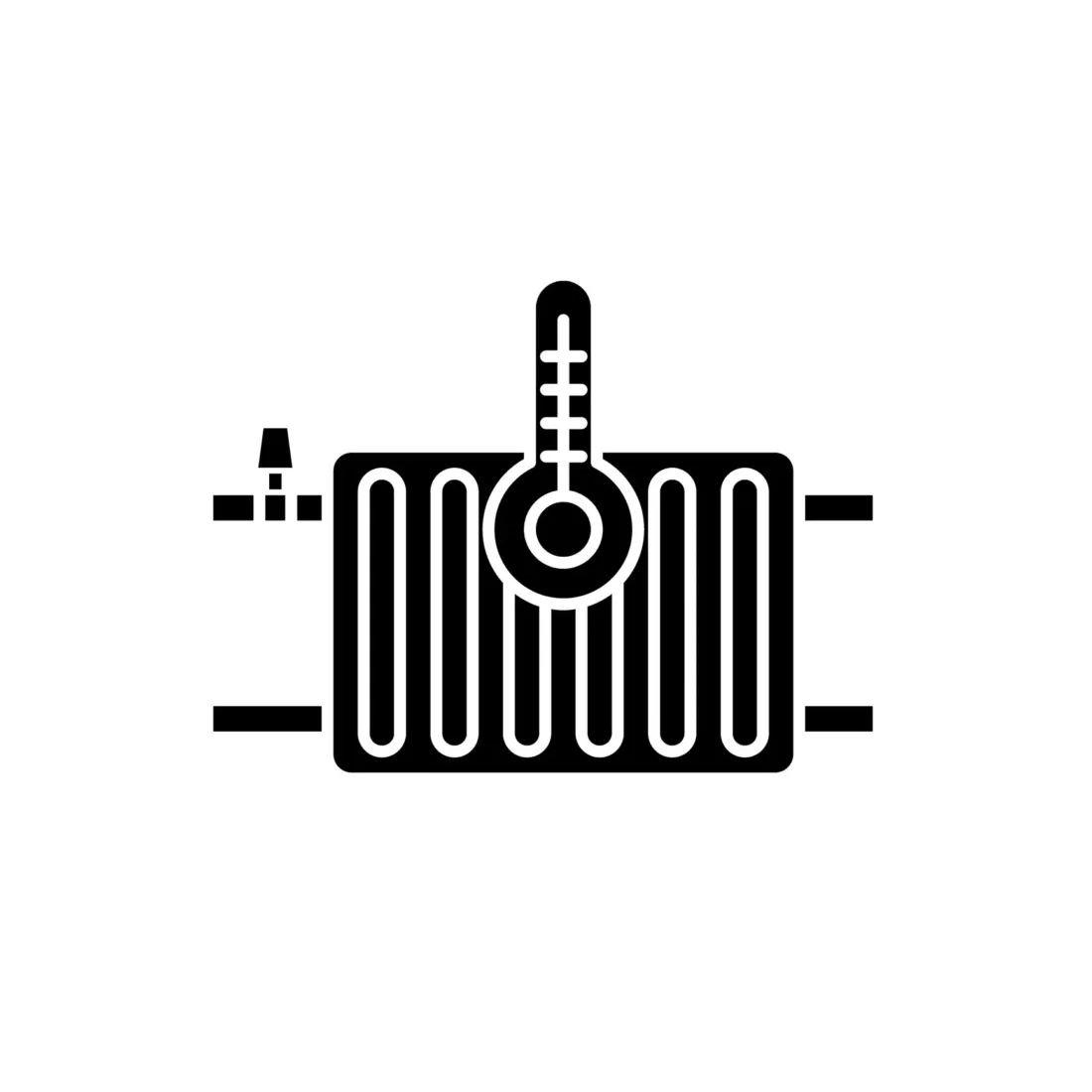
It may sound like a trivial matter, but your smart thermostat should be installed somewhere logical. Large fluctuations in temperature can affect how your central heating works, so it should be placed out of direct sunlight and away from any radiators or heating equipment. If you have thermostatic radiator valves (TRVs), then your thermostat should be placed in a room where these aren’t installed, such as the hallway.
Programme Setup
Once your smart boiler system has been installed, you’ll need to programme the thermostat. This will either be over the course of a week or right there and then. Most versions feature an accompanying smartphone app, which gives you the flexibility of going through the process while sitting down comfortably. You may have to adjust settings as the weeks go by, but it shouldn’t take long for the system to work more economically.
The Main Benefits of a Smart Heating System
Able to learn your complex routine
Flexible use
Remote operation
Works with location settings
Track weather conditions
Saves you money on energy bills
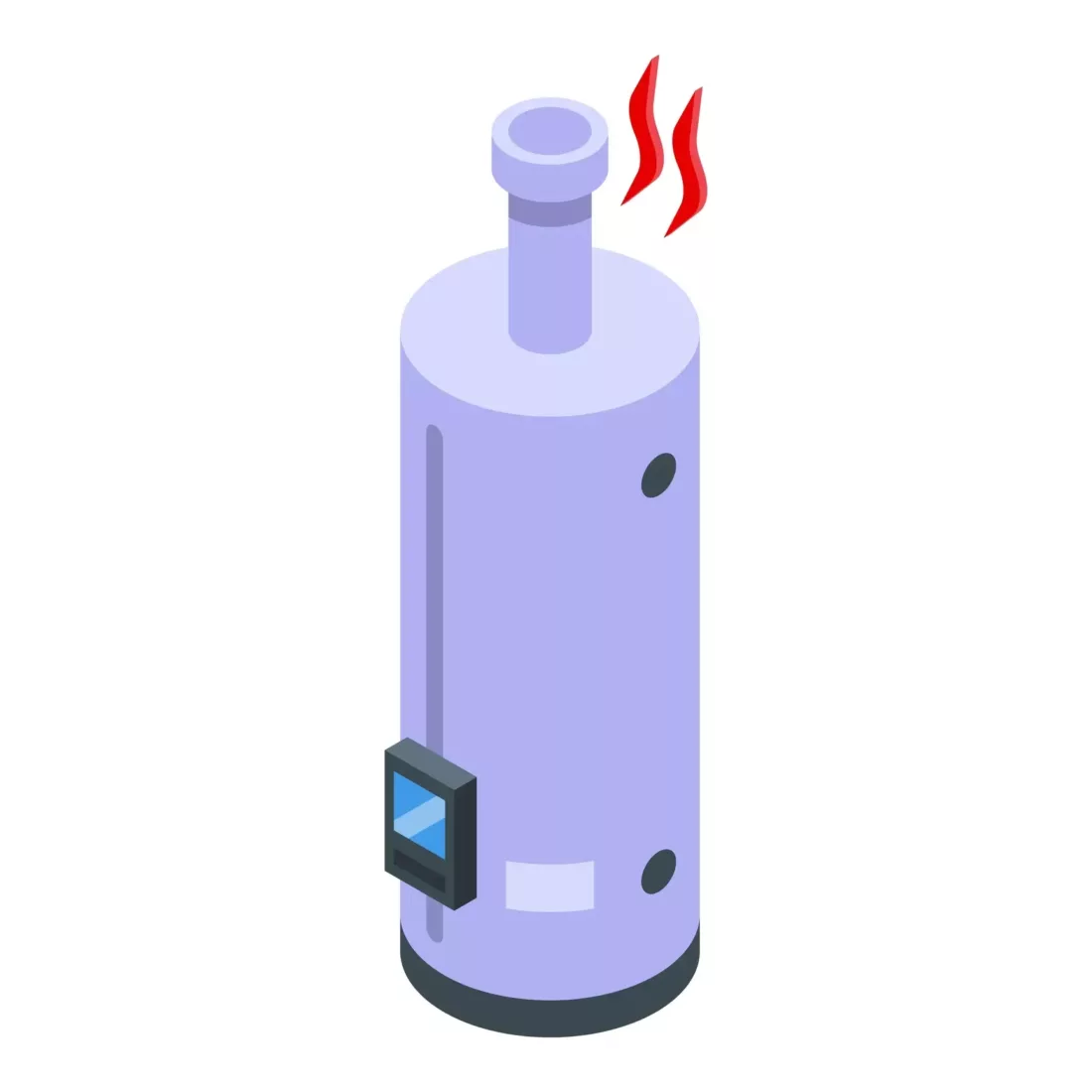
The more advanced your smart boiler system is, the more you can benefit from it. Programmers are useful for routine heating settings, but they don’t take into account impromptu changes in plans that may keep you away from home. If no one is going to be there, a smart thermostat can save energy by only keeping your heating in eco mode.
With the flexibility of use, even systems that don’t work on location settings can be controlled by smartphone when you’re away. You can have lower energy bills by delaying your boiler from coming on until you need it to. With energy efficient settings, you won’t have to suffer from wild spikes of use.
Some of the most advanced smart thermostats are able to monitor the weather conditions, which is useful for calculating how much heating you’ll actually require on any given day. Seasons are rarely uniform in temperature, so instead of worrying about constantly turning your heating on and off, the system can take control itself.
How Much Do Smart Boilers Cost?
Most modern boilers on the market will be compatible with some form of smart heating. You will need to check when comparing models to see if they use OpenTherm technology or are compatible with Hive, Nest or other smart thermostat models. Worcester, Vaillant and Ideal boiler manufacturers have developed their own form of smart control.
Depending on the manufacturer, you can pay anything from £75 to £300 for adding smart boiler settings to your heating system. If you’re thinking about replacing your boiler, this can easily extend into the thousands as the technology is sold separately. You’ll have to look at new boiler costs individually.
You can see rough costs for smart boiler technology in the interactive graph below.
How Do Smart Boiler Controls Compare?

It’s all very well comparing the prices of these kits, but it’s far more useful to understand what you’re getting for your money. Not all systems will learn your habits or adjust themselves accordingly, just like not all smart thermostats can be controlled through your mobile. We’ve outlined some of the best smart boiler thermostats in the UK below.
Bosch EasyControl
Worcester Bosch’s upgrade to the Worcester Wave, this thermostat offers individual room control with Smart TRVs and can detect when a home is empty. It’s also available with wired or wireless compatibility.
Vaillant vSMART
As a self-learning smart boiler thermostat, the vSMART comes with weather compensation and is available wirelessly. You can also connect multiple vSMART controllers to the same app.
Ideal Halo
Another wireless model, the Ideal Halo smart system works through its app, voice control via smart speaker or the device itself. This model also saves energy by only using the heating when someone is home.
Baxi uSense 2
Compatible with both their boilers and air source heat pumps, the Baxi uSense 2 is perhaps the most basic model out there. Only able to control your heating remotely through the accompanying smart boiler app, there aren’t many functions available with this model.
For an overview, you can look at the side by side comparison in the table below. This also takes into account smart thermostats from Hive and Nest.
For a breakdown of how smart thermostats work, take a look at our accompanying guide.
If you’re interested in smart home heating, use the button below to find out how much you’d pay for a smart boiler. You’ll be connected to local installers who will give you a tailored price.
Related articles
View all Boiler articles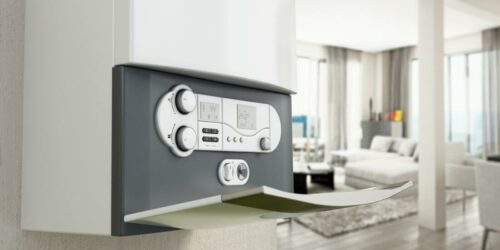
Top Tips When Buying a New Combi Boiler

Save on Heating by Keeping Your Boiler at 60°C
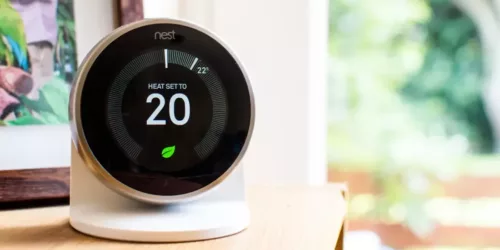
Smart Thermostat Guide: All You Need to Know

Boiler Systems: All You Need to Know About Domestic Boilers
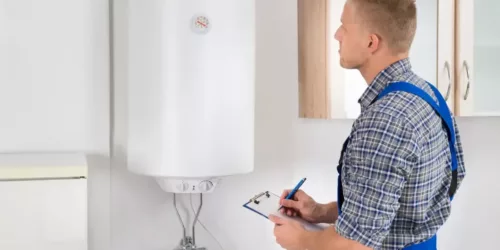
What Size Boiler Do I Need for My Home?
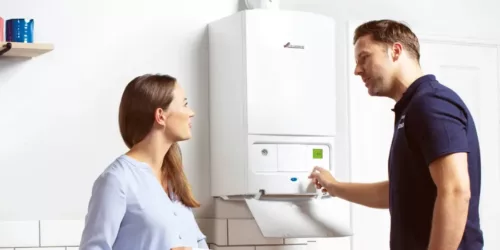
The Complete Guide to Worcester Bosch Boilers

Hydrogen Boilers: The Ultimate Guide







